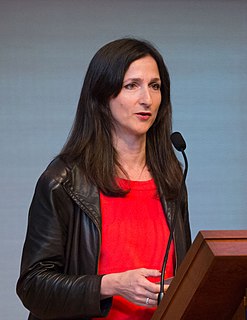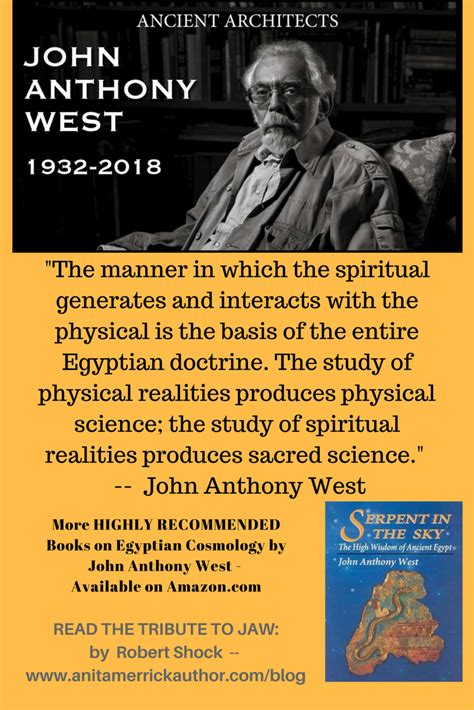A Quote by Heinz Pagels
We surely stand at the threshold of a great adventure of the human spiritó a new synthesis of knowledge, a potential integration of art and science, a deeper grasp of human psychology, a deepening of the symbolic representations of our existence and feelings as given in religion and culture, the formation of an international order based on cooperation and nonviolent competition. It seems not too much to hope for these things.
Quote Topics
Adventure
Art
Art And Science
Based
Competition
Cooperation
Culture
Deepening
Deeper
Existence
Feelings
Formation
Given
Grasp
Great
Great Adventure
Hope
Human
Human Spirit
Integration
International
Knowledge
Much
New
Nonviolent
Order
Our
Potential
Psychology
Religion
Science
Seems
Stand
Surely
Symbolic
Synthesis
Things
Threshold
Too
Too Much
Related Quotes
What keeps me up at night in a negative way is, if we don't solve the problems of the human heart and of the human head, of human psychology, there is no technological solution so great that it can prevent the world that is coming, and a world of suitcase bombs or of the ability to pollute the planet in a way that it cannot recover, of global warming and the rest. We've created through science and technology a different world that has frightening sides to it, and psychology and behavioral science has to be part of this. We're going to have to find a way to humanize the culture itself.
We stand on a great threshold in the human history of space exploration. If life is prevalent in our neighborhood of the galaxy, it is within our resources and technological reach to be the first generation in human history to finally cross this threshold, and to learn if there is life of any kind beyond Earth.
In my view, The Temple of Man is the most important work of scholarship of this century. R. A. Schwaller de Lubicz finally proves the existence of the legendary 'sacred science' of the Ancients and systematically demonstrates its modus operandi. It was this great science-based upon an intimate and exact knowledge of cosmic principles-that fused art, religion, science, and philosophy into one coherent whole and sustained Ancient Egypt for three thousand years.
But one thing that seems pretty clear when we look at human religion is that it's highly tied in with human culture. So if, as seems to be the case, culture's governing a lot of what whales do, it's perhaps not an unreasonable hypothesis to think that it's got elements of...what I guess you'd call the supernatural.
God is great"). Conversations about the practical impossibility of God's existence and the science-based irrationality of an afterlife slid seamlessly into xenophobia over Muslim immigration or the practice of veiling. The New Atheists became the new Islamophobes, their invectives against Muslims resembling the rowdy, uneducated ramblings of backwoods racists rather than appraisals based on intellect, rationality and reason. "Islam, more than any other religion human beings have devised, has all the makings of a thoroughgoing cult of death.
Science is a human activity, and the best way to understand it is to understand the individual human beings who practise it. Science is an art form and not a philosophical method. The great advances in science usually result from new tools rather than from new doctrines. ... Every time we introduce a new tool, it always leads to new and unexpected discoveries, because Nature's imagination is richer than ours.
One can delineate the domain of philosophy however one likes, but in its search for truth, philosophy is always concerned with human existence. Authentic philosophizing refuses to remain at the stage of knowledge […]. Care for human existence and its truth makes philosophy a 'practical science' in the deepest sense, and it also leads philosophy—and this is the crucial point—into the concrete distress of human existence.
It seems to me that the idea of a personal God is an anthropological concept which I cannot take seriously. I feel also not able to imagine some will or goal outside the human sphere. My views are near those of Spinoza: admiration for the beauty of and belief in the logical simplicity of the order which we can grasp humbly and only imperfectly. I believe that we have to content ourselves with our imperfect knowledge and understanding and treat values and moral obligations as a purely human problem-the most important of all human problems.
There is so much to be gained from adulthood! Feelings just become so much deeper. The feeling of sadness and loss is much deeper than when you were a kid, but the feelings of love and happiness have also so much more dimension when you get older... That is what's so hard and exciting about being a human being.
In a dispassionate comparison of the relative values of human and robotic spaceflight, the only surviving motivation for continuing human spaceflight is the ideology of adventure. But only a tiny number of Earth's six billion inhabitants are direct participants. For the rest of us, the adventure is vicarious and akin to that of watching a science fiction movie. At the end of the day, I ask myself whether the huge national commitment of technical talent to human spaceflight and the ever-present potential for the loss of precious human life are really justifiable.
Times have changed, and science has made great progress, and so has our work; but our principles have only been confirmed, and along with them our conviction that mankind can hope for a solution to its problems, among which the most urgent are those of peace and unity, only by turning its attention and energies to the discovery of the child and to the development of the great potentialities of the human personality in the course of its formation.


































